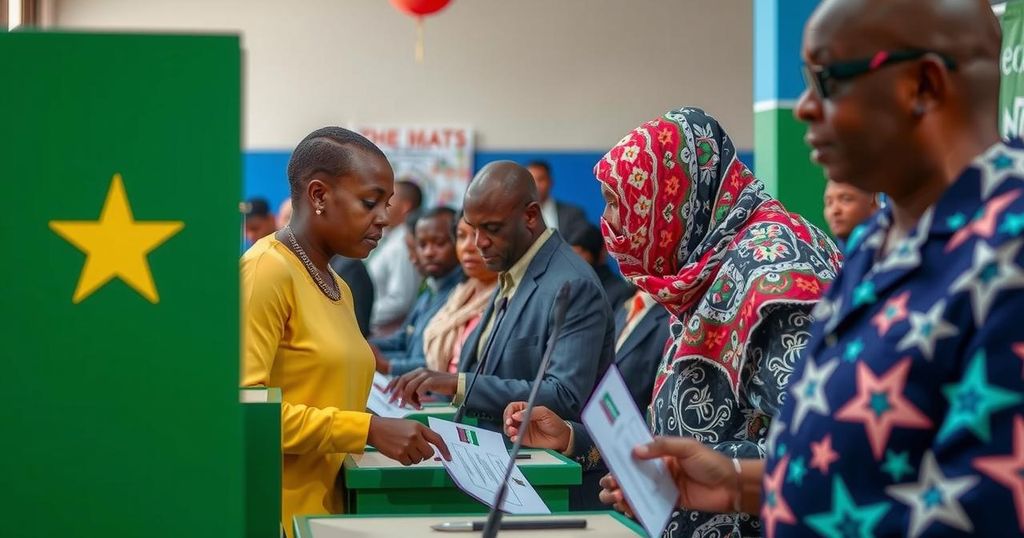Senegal Votes in Crucial Election for Legislative Control and Reform Implementation
Senegal has opened polling for a crucial parliamentary election to determine the future of President Bassirou Diomaye Faye’s reforms. With over 7 million voters participating, Faye’s party aims to gain a majority in the National Assembly. The election occurs amid significant social discontent and prior political unrest, spotlighting the importance of governance and reform in Senegal’s ongoing democratic journey.
On Sunday, Senegal commenced polling for a parliamentary election pivotal to the newly elected President Bassirou Diomaye Faye’s promised reforms. With over 7 million registered voters selecting 165 lawmakers, the president’s party, PASTEF, seeks to overcome its current minority status in the National Assembly. Faye’s campaign focused on addressing corruption and enhancing national resource sharing, proposing significant changes for the country. Previously, Faye dissolved the opposition-led parliament to facilitate this snap election, facing off against former President Macky Sall’s coalition, among other parties. Polling closes at 6 p.m. GMT, with preliminary results expected by Monday morning and final counts later in the week. Analysts suggest Faye’s party needs to secure at least 83 seats to gain an absolute majority, which appears feasible given his earlier electoral success and popularity. At just 44 years old, President Faye’s ascent to leadership comes amid frustrations voiced by Senegal’s youth, who represent over 60% of the population yet face soaring inflation and limited job prospects. The political landscape has seen unrest, with clashes noted during the campaign period, including an incident where an opposition party’s headquarters was set ablaze. Ousmane Sonko, a pivotal figure in Faye’s rise, condemned violence against his party members, reflecting tensions within Senegal’s evolving political milieu. His call for justice highlights the instability that has marred recent elections. The political dynamics are further complicated by historical grievances stemming from opposition candidates’ prior imprisonments and the country’s struggles against authoritarianism. As Senegal heads into this decisive electoral moment, the outcome will significantly impact the trajectory of reforms and governance in this West African nation.
In recent years, Senegal has experienced notable political turbulence, culminating in the election of President Bassirou Diomaye Faye, who won on an anti-establishment platform. His presidency’s ability to implement reforms hinges on the legislative election outcomes and the configuration of the National Assembly. The political context is fraught with tensions, driven by youthful discontent, the economic challenges posed by inflation, and significant levels of informal employment. Additionally, past political unrest and violence, especially concerning the treatment of opposition leaders, underscore the need for stable governance in this historical democratic society.
The parliamentary election in Senegal represents a critical juncture for President Faye and his ability to implement promising reforms amid a backdrop of social unrest. With the youth demographic increasingly voicing its frustrations over economic hardships and governance issues, this election will test the resilience of Senegal’s democratic framework. The electoral results will not only affect internal party dynamics but also signal the potential for broader reforms that address longstanding grievances within the country.
Original Source: apnews.com




Post Comment